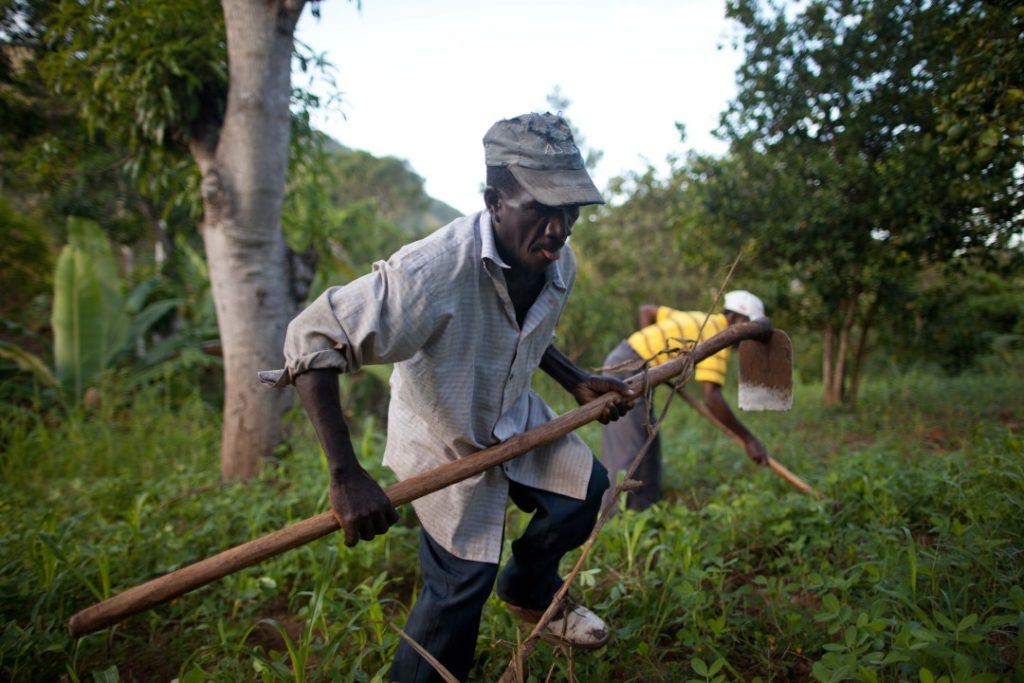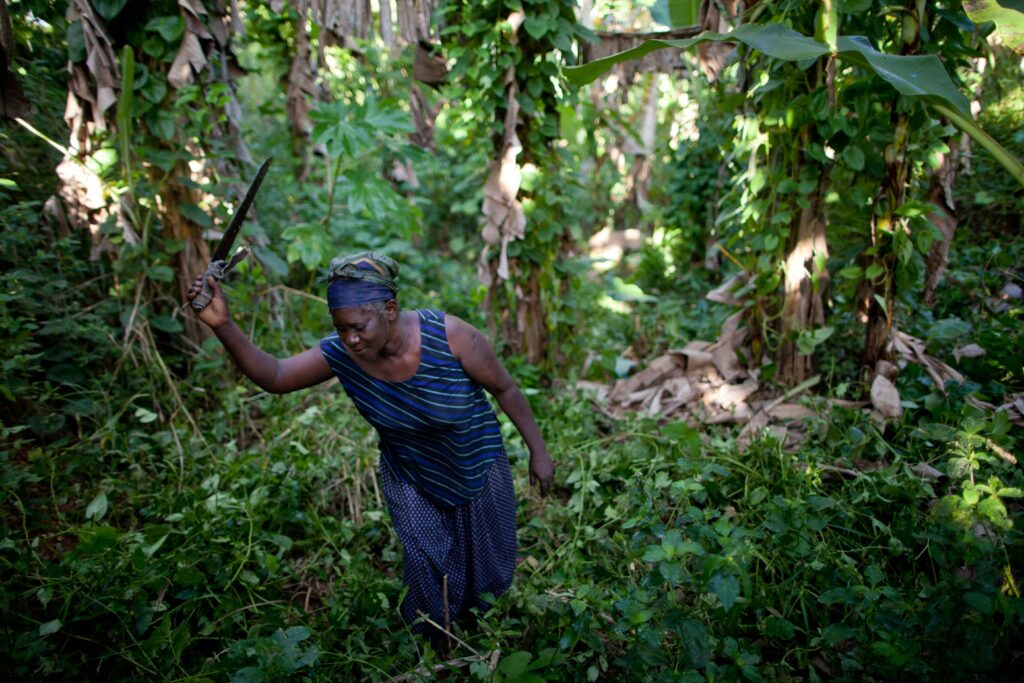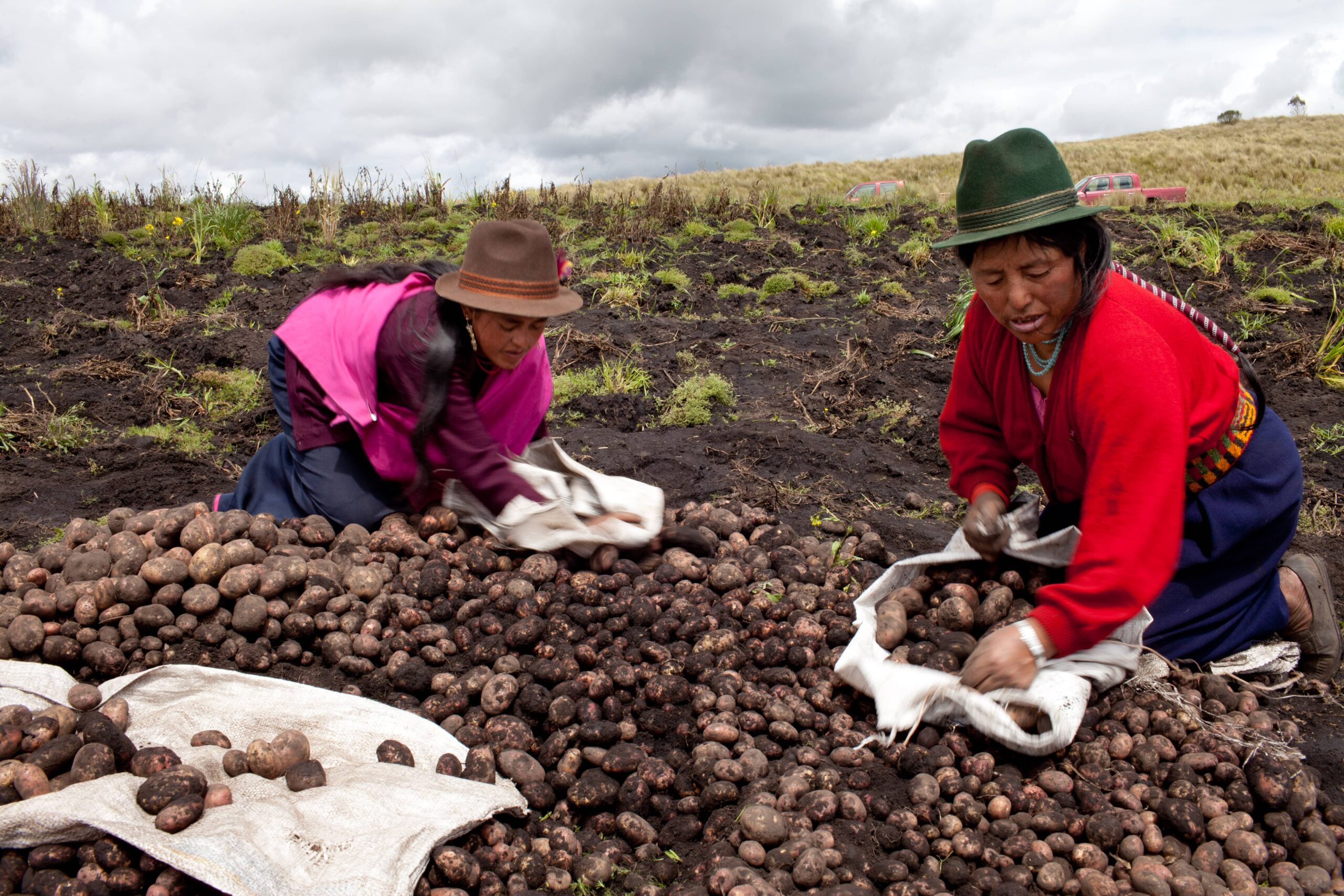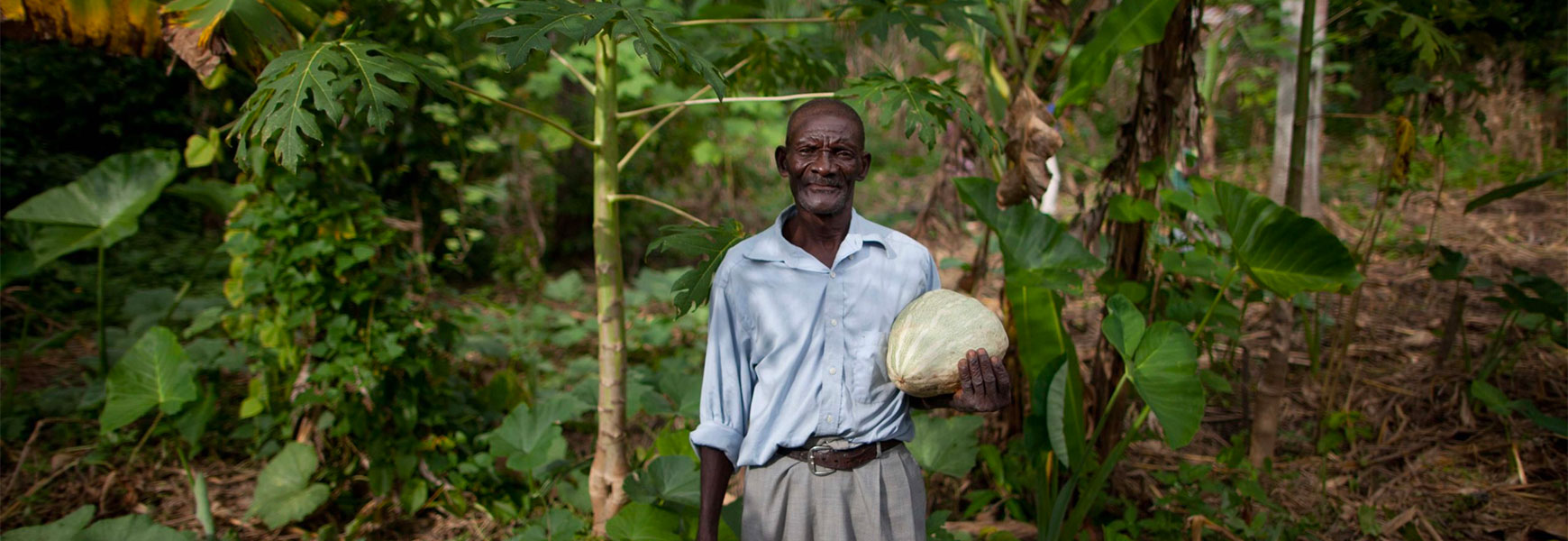Scaling Agroecology for a Resilient Future in Haiti & Ecuador
Agroecology provides practical and scalable solutions for a shift towards sustainable nutritious diets, soil regeneration, and climate resilience among farmers and pastoralists.
Agroecology offers a path for the positive transformation of our flawed farming and food systems, which significantly contribute to climate change, obesity, and global hunger. As interest in scaling agroecology grows, it’s crucial to evaluate its potential to merge science, practice, and social movements to build sustainable food systems.
By offering practical and scalable solutions, agroecology promotes nutritious diets, soil regeneration, and climate resilience among farmers and pastoralists worldwide. But how do these benefits translate into tangible improvements for communities? Let’s explore some examples of agroecology in action, drawing from the work of our partners in Haiti and Ecuador.

Scaling Agroecology in Haiti: A Path to Resilience Amid Rising Challenges
In Haiti, rampant soil erosion and deforestation has forced people to migrate to overcrowded cities like Port-au-Prince. The devastating 2010 earthquake underscored Haiti’s vulnerability, exacerbated by historical exploitation and weak governance. To create a resilient future, focus must shift to revitalizing rural communities, regenerating land, and reversing the flow of resources to urban centers. Organizations like our partner Partenariat pour le Développement Local (PDL) and Groundswell International are committed to strengthening the capacity of local communities to build healthy local food systems to face ongoing challenges.
Cantave Jean-Baptiste, Executive Director of PDL and Groundswell International’s Board Liaison for Latin America and the Caribbean, emphasizes the organization’s focus on empowering family farmers and peasant associations to lead their own development efforts independently from external aid. They aim to create a sense of agency and capacity within these associations, enabling them to assert their identity as proactive contributors to their communities. This approach involves ongoing efforts to cultivate and expand local leadership, particularly among women and youth, while reinforcing democratic organizational structures from the grassroots level. Ultimately, these associations drive initiatives to promote agroecological farming, enhance livelihoods, and stimulate local economies.
PDL’s approach has enabled rural communities in Haiti to be the agents of their own development, building upon existing farmer strengths to co-create robust farmers’ organizations and encourage democratic decision-making. By spreading agroecological practices and strengthening local resources, they’ve enhanced production, income, and resilience to the effects of climate change. Challenges persist, but PDL aims to assess impacts, expand farmer enterprises, and promote agroecology through communication channels.
Peasant associations demonstrate the potential to regenerate farms and communities, needing support from policies and programs to safeguard a resilient future for Haiti. You’ll find concrete examples of how farmer-led initiatives and agroecology have transformed the lives of communities in rural Haiti in Chapter 3 of our book Fertile Ground.

Spreading Agroecology in Ecuador to Restore Traditional Practices
In Ecuador, traditional Andean farming methods that resemble agroecology sustained indigenous communities for generations. However, modern agricultural practices, including Green Revolution technologies and export-oriented crops, caused environmental and social crises, threatening traditional farming practices and food sovereignty. Hybridizing traditional methods with Western technologies exacerbated issues like soil erosion and biodiversity loss. Urgent action was and is needed to restore traditional farming practices and protect both ecosystems and food sovereignty in Ecuador and beyond.
EkoRural, our local partner in Ecuador, supports rural communities with learning sustainable farming methods such as agrecology, and managing local resources. They enable social change through endogenous development processes, activating community-led initiatives and facilitating exchanges between rural and urban stakeholders. EkoRural’s approach includes direct support for rural initiatives, farmer-to-farmer knowledge sharing, and collaboration with diverse actors. They advocate for diversified and sustainable livelihoods, emphasizing the importance of local food systems and family farm regeneration. EkoRural’s programs engage with soils, water, seeds, and local markets to promote practices like cover cropping, water harvesting, seed conservation, and rural-urban connections, ultimately contributing to broader social change and food sovereignty.
Concrete Examples of Agroecology in Action in Ecuador:
- Andean methods similar to agroecology: Techniques such as polyculture and crop rotation have been reintegrated by EkoRural to sustain soil health and biodiversity. These methods ensure that nutrients are recycled, pests are controlled naturally, and crop yields remain stable.
- Water harvesting and management: Innovative water management techniques like constructing small dams and irrigation canals have been reintroduced. These methods ensure that water is used efficiently, which is crucial in regions facing water scarcity.
- Seed conservation initiatives: Community seed banks have been established to preserve indigenous seed varieties. These banks are vital for maintaining genetic diversity, which is essential for resilient and adaptable farming systems.

Agroecology Builds a Foundation for the Future
Scaling agroecology in Haiti and Ecuador have taught us that the following are needed for successful expansion:
- A shift from export-focused agroindustry to multifunctional, locally adapted approaches.
- Empowering family farmers and rural organizations to innovate within their contexts is vital.
- Evaluation frameworks that reflect local values.
- Flexibility and respect for diverse motivations are crucial for sustainable progress in agricultural development.
- Rural development initiatives must prioritize advancing democratic, healthy local food systems and promoting dialogue across diverse stakeholders. Collaboration between public institutions, civil society, NGOs, universities, and communities is essential. Innovations in urban-rural relationships, including peri-urban and urban agriculture, should be embraced for sustainable change.
Additionally, raising local markets, preserving seed varieties, and enhancing farm biodiversity hinge on successful rural-urban alliances, offering avenues for collaboration and sustainable agricultural development.
You can learn more about scaling agroecology and the opportunities it provides by downloading a free copy of “Fertile Ground: Scaling Agroecology from the Ground Up.” You can also show your support for Groundswell by purchasing a printed copy.

